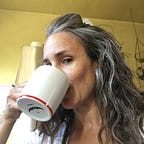How Schools and School Librarians can use oral histories and local archives
Teachers and school librarians know that classroom presentation must be supplemented with a variety of formats for information to “stick”. Learners need to see information in various formats. The teacher’s presentation is just the beginning of the learning, and good teachers will offer learners opportunities to read, write, discuss, and experience. Sometimes the “experience” part of learning is a hands-on activity, such as looking into a microscope, observing plant growth over time, creating a drawing, or even building a three dimensional model.
In the case of teaching history, educators have to work to help some learners connect to the topic. Beyond amazing in-class presentations, educators show documentaries, bring learners to reenactments when possible, and have students create timelines. Librarians offer stories; fiction — and even graphic novels — so learners can experience what a particular time period was like. What else can librarians do to enhance learning? We can support teachers and students by offering links and connections to local and international history in the format of oral history, and photographic archives. Additionally, some students may want to interview older adults about eras they lived through. Below I offer some resources for teachers and librarians to use.
The American Library Association has a set of resources and best practices for educators here.
The Bradley Center at CSUN has a wide variety of photographs and oral histories of black photographers, border studies, United Farm Workers and many others, here.
Densho: Japanese American Incarceration oral histories and photo histories here.
The Ah-Tha-Thi-Ki Museum is the oral history collection of the Seminole’s Miccosukee and Creek. Find the podcasts here.
The Oral History Association has so many more listed here.
This list is not exhaustive, it doesn’t even scratch the surface. Wherever you are in the world, your local public library, history society, or university, may have local resources for you as well.
